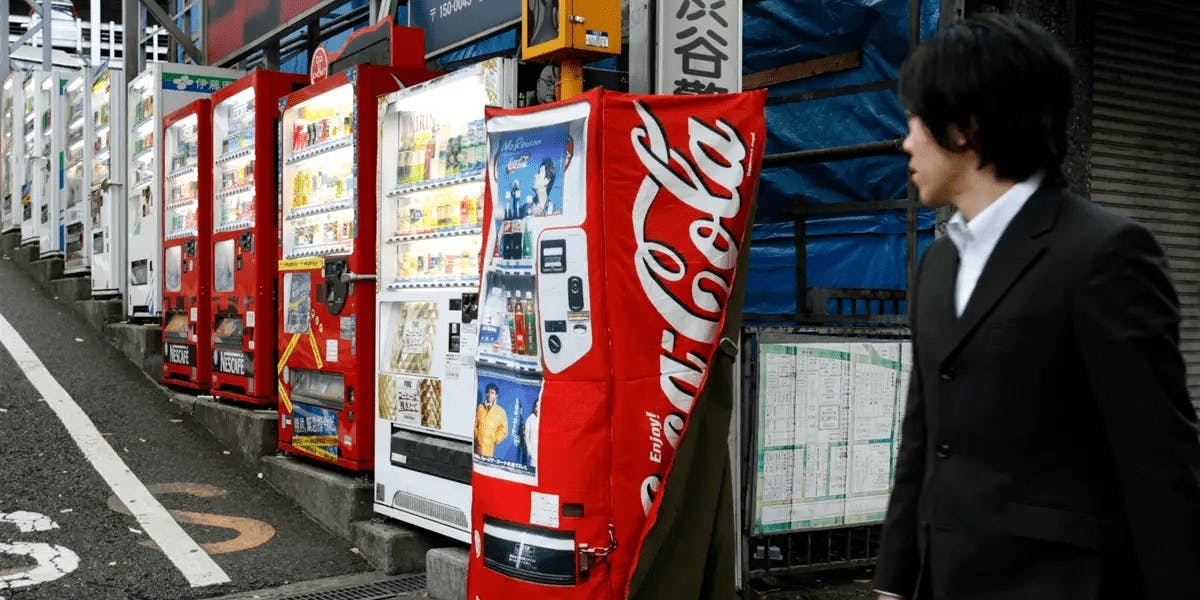
What does the future of vending look like?
Although biomedical research will eventually deliver a vaccine for Covid-19, the world will take time to regain its normal course. The coronavirus pandemic will cause a semi-permanent shift in human interactions not only amongst themselves but also their surroundings.
This ‘new normal’ will compel an even greater reliance on technology. In fact, the world has already shifted to using technology for old established customs — families are using video conferencing to celebrate festivals together, and governments are using social media applications to track the locations of individuals susceptible to the virus.
Robotics and automation will lead the way in the new technology-dependent world. We were already heading towards more and more automation, but the current norms around social distancing will only accelerate the uptake. Organizations like McDonald’s are testing robots as cooks and servers, while online retailers are using robots to automate sorting, packaging and shipping.
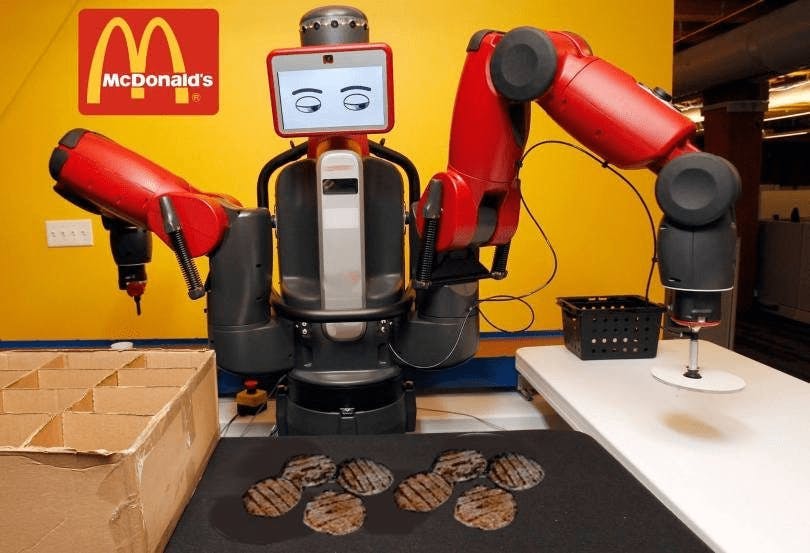
Why Will Vending Machines Become Popular?
No human interaction
As harsh as it may seem, it is sensible at this time to minimize human interaction and encourage social distancing. This is where vending machines have an edge over other retail channels: they are hygienic systems where products are neatly packaged in portions, in a refrigerated unit, behind glass doors. Customers have to punch in the corresponding product code, pay by card and the window opens to collect the goods.
If you had the option to buy a can of Coke from a vending machine right now, or have someone grab a glass, put ice and lemon into it — then pour it for you, what would you do?
While it remains a fact that a real person stocks the machines, one can be assured that vending operators adopt the most stringent standards of hygiene and cleanliness procedures.
Less crowded environment
As people are stockpiling essential goods, supermarkets and grocery stores are getting congested. Vending machines, on the other hand, present a safer crowd-free alternative to make purchases.
Ease of access
Vending machines are everywhere! There are approximately 4.6 million vending machines in the US alone and about 5 million in Japan. Given the high density of vending machines in most countries, it is likely that there will be one close to most households and workplaces.
Despite the inherent advantage that vending machines have over traditional retail, operators need to be discerning about how they adapt to the ‘new normal. The changes that companies make now will yield benefits long after Coronavirus restrictions ease.
How Can Vending Operators Adapt To The ‘New Normal’?
Change the product mix
Operators must continue to focus on the customer’s needs and keep up with the latest innovation.
For instance, there will be a high demand for protective facemasks and hand sanitizers in the foreseeable future; in fact, a company in Turkey recently launched a machine that dispenses face masks. By making use of such technology, operators can not only offer essential products such as hand sanitizers, soap and immunity-boosting vitamins to the community but can also increase their revenues in a challenging business environment.
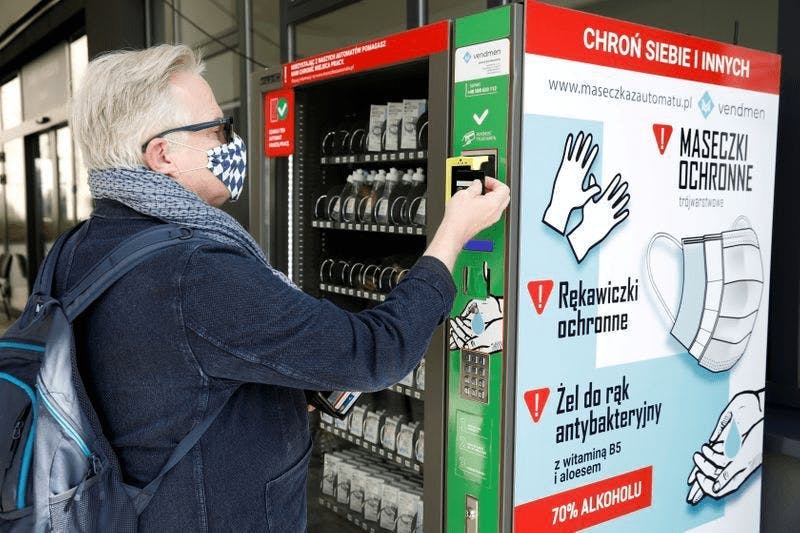
Vending machine for hand sanitisers
Vending machines that sell fresh food are also booming during the Coronavirus crisis. A shift in approach to provide ready to eat meals and hot beverages in vending machines, like in Japan, is required in these times.
Focus on specific locations
Reporting shows which locations are most active during this time. Hospitals, manufacturing facilities, and residential buildings, for example, are sites that continue to generate sales. The focus should be on servicing these locations in the most efficient way possible.
At HIVERY, we have conducted internal research on the channels that are performing well. Here is what the data shows:
Hospitals: The Hospital Channel had similar revenues in 2020 relative to 2019 pre-COVID. However, once the medical cases started to rise in the middle of March, the revenue plunged.
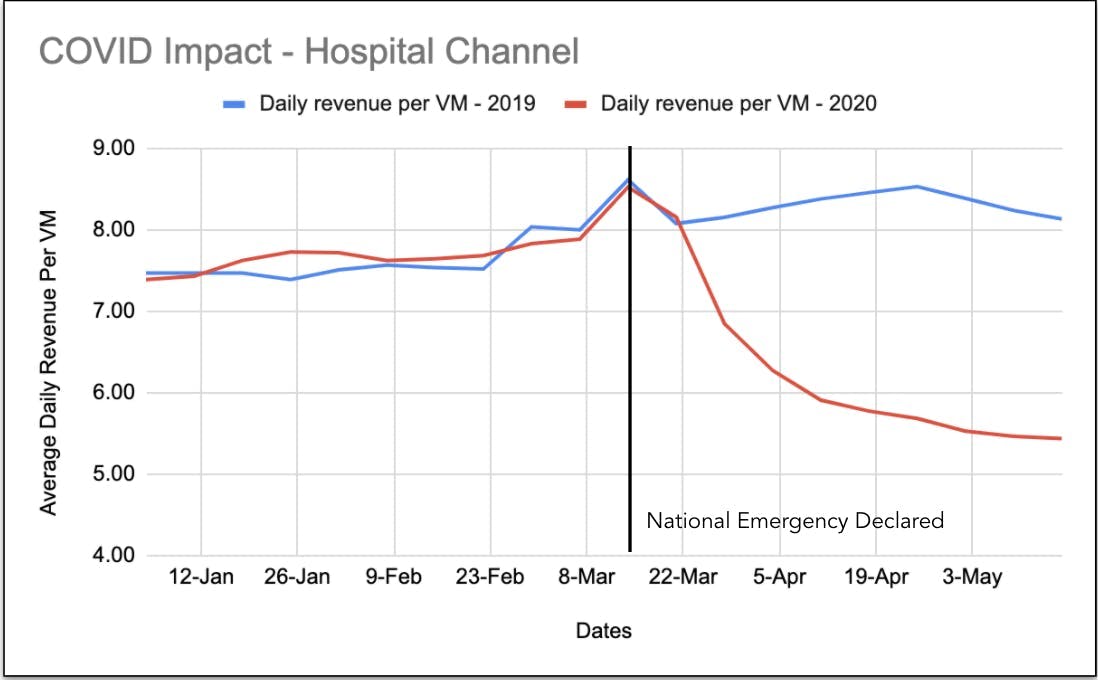
Residential: As more people are staying at home due to the lockdown, Vending Machines in residential buildings have matched the revenues of the previous year.
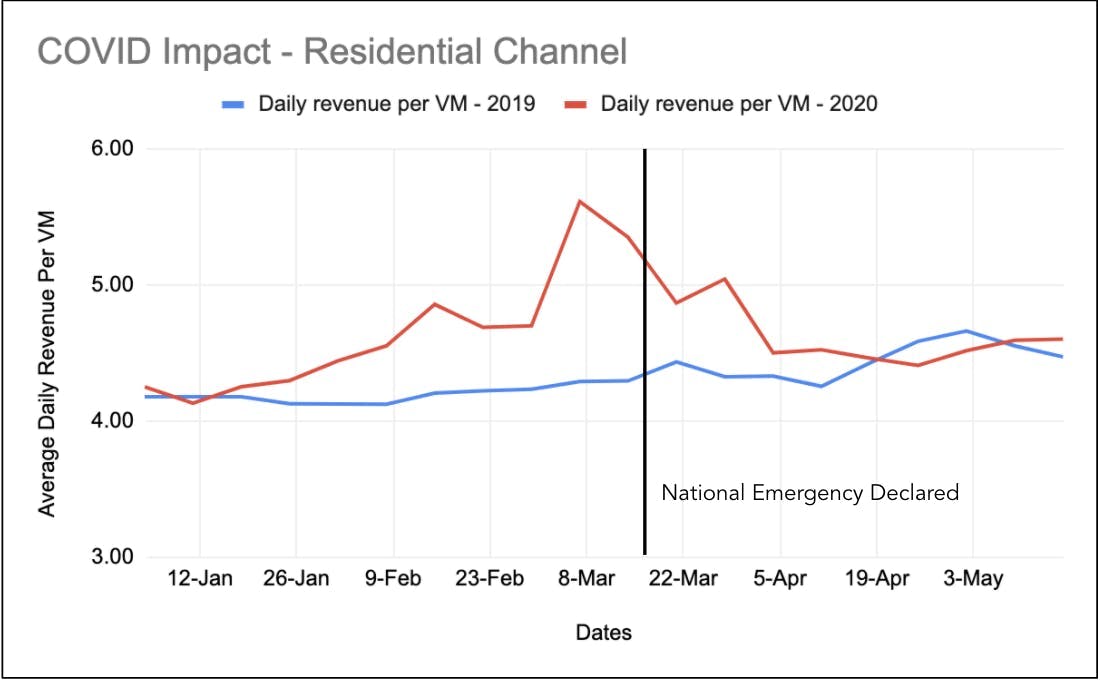
Amusement Parks:They started the year with strong growth in the first two months before the decline in revenue in March. This channel too will be susceptible to lockdown restrictions.
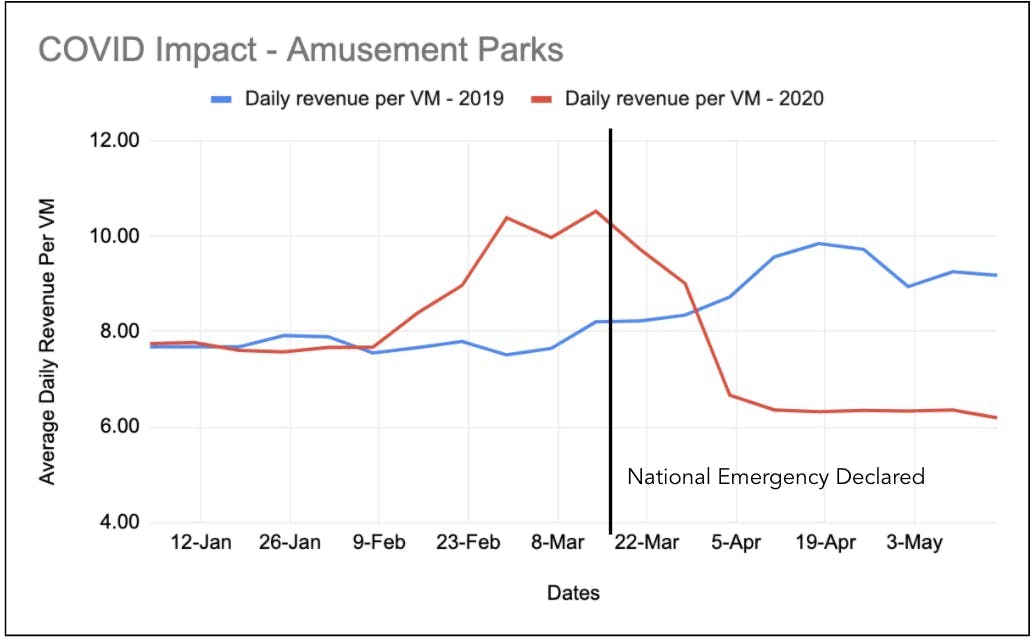
Contrary to other market segments, the Super Market channel has grown since the National Emergency was declared and lockdown restrictions were set in place. Operators should focus on servicing this channel efficiently.
Reduce operational costs:
With the closure of universities, hotels, shopping malls and other establishments, vending operators are generating less revenue. To ensure business survival operators need to shift focus to cost-saving initiatives.
How Can Operators Reduce Costs?
Visit vending machines optimally
By optimizing visit schedules, vending machine operators can become more efficient.
There are going to be fewer re-stock visits across the board right now, but if organizations are ingenious about it, they can optimize scheduling even more.
Re-organize routes
There are plenty of machines that operators cannot visit due to restrictions. They have also had to re-assign their existing route personnel to other pressing matters. Taking a data-driven approach to re-organizing routes will lead to appreciable savings.
Extend the restock cycle with space-to-sales optimization
Vending operators are suffering low patronage due to social distancing. To keep outlets stocked in the same old way, will now result in out-of-stocks and over-servicing. How should the outlets (that are still operating) be set now, so that they can be maintained on a skeleton crew but still meet demand?
For machines that have dropped in sales, operators could look at optimizing the space allocation of products — making the most of the less frequent visits. Indeed doubling down on effective merchandising is the need of the hour.
Optimise Vending Machines Using HIVERY Enhance
Additionally, reducing the number of SKUs available in the machine will help increase driver productivity and extend visit cycles.
In the end, changes will have to be made, the extent of which nobody can properly fathom right now. However, we are determined to try and be agents of that change, as opposed to victims of it.